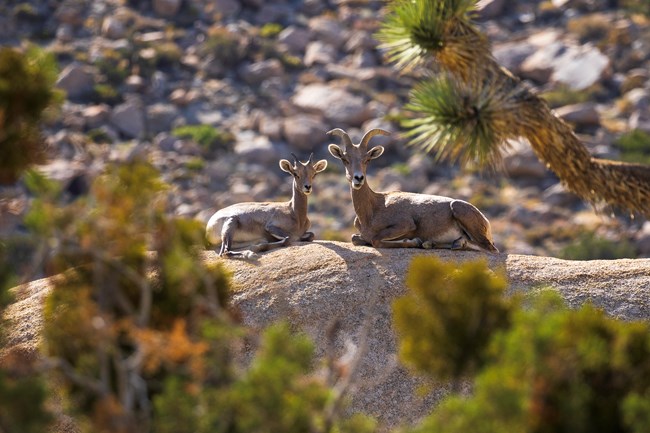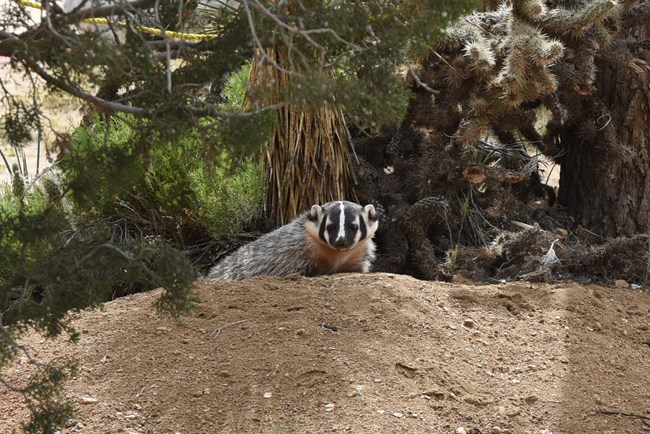
NPS Photo / Preston Jordan Jr. Reporting wildlife observations enhances our understanding of animals in Joshua Tree, helps park managers conserve native species and habitats, and protects wildlife and the public. When viewing wildlife, maintain a safe distance and never attempt to feed, pet, or interact with the animals. Animals are typically not aggressive towards humans if they are left alone. The best relationship with wildlife is a long distance one. What to ReportEmergenciesDangerous encounters with animals are rare in Joshua Tree, but can happen. If an animal is acting aggressively or there is an immediate threat to visitor safety, please call 911. If you cannot get cell phone reception, please inform a ranger in the park or staff at an entrance station. Alternatively, you can use the emergency phone at Indian Cove Ranger Station, Cottonwood Visitor Center, or Intersection Rock parking lot near Hidden Valley Campground. Bighorn SheepDue to disease and dwindling water resources, bighorn sheep face an uncertain future in the park. Wildlife Biologists are attempting to monitor their movements and whereabouts. Please report any sightings. Rare or Uncommon AnimalsSome species are seen every day in the park, while others are are rarely seen by visitors or staff. Examples of rare or uncommon animals include (but aren't limited to): mountain lions, badgers, tortoises, ringtails, deer, foxes, golden eagles, mountain quail, California tree frogs, and woodland alligator lizards. Common Animals with Unusual or Interesting BehaviorExamples include (but aren't limited to):
Birds Nesting in Rock Climbing AreasBirds, like hawks, falcons, and owls, will occasionally build a nest on a rock climbing route. If it is an active nesting site, we will temporarily close the route to protect the bird and their offspring. 
NPS Photo / Hannah Schwalbe How to ReportTo submit a wildlife observation, please click here.
|
Last updated: February 12, 2024
